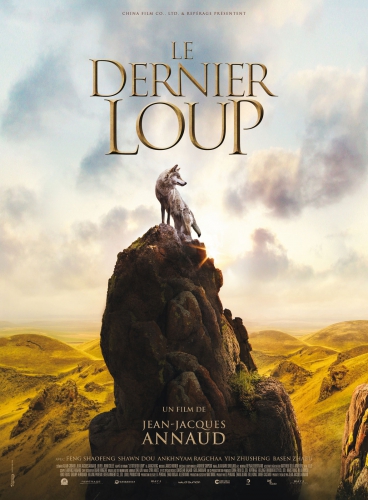Our “progressive” obsessions for change neglect to consider consequences. Change is demanded for the sake of a fad or a slogan: “equality,” “democracy,” “reproductive rights” . . . Even a word of caution is damned as “reactionary,” “old-fashioned,” or “fascist.” Traditions, customs, and beliefs are regarded as being as transient as the planned obsolescence of computers. The assumption by the “positivists” is that history is a straight line from “progress” and “primitive” to “modern,” and that anything or anyone who stands in the way is what Marx, in The Communist Manifesto, vehemently damned as a “reactionist.”
The “positivist” assumption was a conscious break with the past; its founder, de Condorcet,[1] [2] was an ideologue of the French Revolution, albeit meeting his fate like many others. Marx was in the same mold. Under the impress of the same zeitgeist, Darwinism was applied to social history and economics and used to justify another type of revolution: the industrial, and nineteenth-century positivists, including Social Darwinists, confidentially saw the nineteenth century as the culmination of all hitherto existing societies. This optimism among the highest intellectual circles was cogently expressed by A. R. Wallace, who was next to Darwin in importance in propounding the theory of evolution: “Not only is our century superior to any that have gone before it but . . . it may be best compared with the whole preceding historical period. It must therefore be held to constitute the beginning of a new era of human progress . . .”[2] [3]
As a reminder that the twentieth and twenty-first centuries are trapped in the same mental straitjacket of “progress” and, ironically, that historical perspectives have not “progressed” beyond the dogmatic assumptions of de Condorcet, Marx, or Wallace, influential academics such as Francis Fukuyama assure us with the same certainty that liberal democracy, under the auspices of the United States, is not only the culmination of all hitherto existing history, but that it is equally applicable to all humans. Moreover, once its universal dispensation has been achieved, this will be literally “the end of history,” and there will be global happiness via production and consumption, and aesthetics will have become so deadened that there is no differentiation between Beethoven and pop.[3] [4] This description is not a spoof or satire.
What is assumed is that man, as a “higher animal,” is so detached from nature that he can mold himself into whatever form he desires, and that the method and aim are justified by a preconceived ideology that shows it to be “true,” whether as Jacobinism, Marxism, or Free Trade. Man, through “social laws,” is above all organic and ecological considerations. It is erroneous for conservatives to assume that Marxism is based on “environmentalism,” considering that the Marxist doctrine states that by changing the environment – under socialism – human nature is thereby changed. Rather, Marxism regards the laws of ecology, just as much as “biologism,” as the laws of Mendelian hereditary, and Marxist regimes tried to overcome both.[4] [5] Hence, doctrines that insist that man is subject only to social laws and the laws of production – that is, doctrines of economic reductionism, whether of the socialistic or capitalistic varieties (both stem from the same outlook) – insist in a hubristic manner that humanity is impelled towards a Promethean conquest of all nature, and can without restraint impose its will upon the universe. What is required is an understanding of the laws of social progress that circumvent all others. How cynical that Marxists entered en masse into the ranks of the ecological and “green” movements – initiatives of the Right – after the Marxist failure to make any headway among the “international proletariat,” that only existed in the imaginings of reading-room ideologues!
The restraint that was so condemned by Marx as “reactionism,” and meets the same chorus of hatred today by “progressives” of all persuasions, is the anchor of tradition. So far from being a regressive personality trait, it is a trait of mature wisdom, drawing on the accumulation of millennia of experience and epigenetically conveyed over generations as “culture” and “custom.” It is what is ridiculed by the “progressives” – who, in their feigned intellectualism, have discarded, obscured, slandered, or buried those who really did seek to understand the nature of being human, whether as philosophers such as Martin Heidegger, Anthony Ludovici, and Oswald Spengler,[5] [6] or as scientists, such as the physiologist Alexis Carrel, the zoologist Konrad Lorenz, the psychologist Carl Jung, or the present-day biologist Rupert Sheldrake.[6] [7]
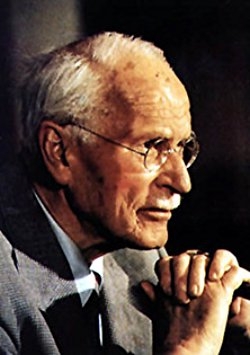 Carl Jung
Carl Jung
Carl Jung, father of analytical psychology, made the point that Western man’s psyche is not keeping pace with his technology. The levels of our unconscious are multi-layered, reaching back to primordial existence, yet Western technology has exponentially leaped ahead, leaving behind the anchorage of tradition in the acclaimed “march of progress.” Jung wrote of this:
Our souls as well as our bodies are composed of individual elements which were all already present in the ranks of our ancestors. The “newness” of the individual psyche is an endlessly varied recombination of age-old components. Body and soul therefore have an intensely historical character and find no place in what is new. That is to say, our ancestral components are only partly at home in things that have just come into being. We are certainly far from having finished with the middle ages, classical antiquity, and primitivity, as our modern psyches pretend. Nevertheless we have plunged into a cataract of progress which sweeps us into the future with ever wilder violence the farther it take us from our ranks. The less we understand of what our forefathers sought, the less we understand ourselves, and thus we help with all our might to rob the individual of his roots and his guiding instincts.[7] [8]
The psyche becomes fractured in contending with a discrepancy between millennia of ancestral experiences and the jolt of what is “modern,” and which aims to discard such primordial wisdom as redundant. Mentally fractured individuals create socially-fractured entities still inaccurately named “societies,” with a multitude of social pathogens. Jung considered the ultimate aim of the individual to be “individuation,” the integration of the fractured parts of the psyche of the individual, and beyond that, of the collective unconscious of the race and of society.
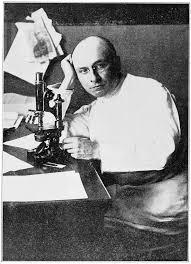 Alexis Carrel
Alexis Carrel
Alexis Carrel was a Nobel Prizewinning physiologist. He departed from the safety, comfort, and fame of life in the United States to return to his native France in a time of need to work during the war with the National Revolutionary regime of Marshal Petain. Carrel was also concerned with the degeneration and fracturing of “modern man” caused by progressivism. In his best-selling 1937 book, Man the Unknown, Carrel addressed these problems:
[M]en cannot follow modern civilization along its present course, because they are degenerating. They have been fascinated by the beauty of the sciences of inert matter. They have not understood that their body and consciousness are subjected to natural laws, more obscure than, but as inexorable as, the laws of the sidereal world. Neither have they understood that they cannot transgress these laws without being punished.
They must, therefore, learn the necessary relations of the cosmic universe, of their fellow men, and of their inner selves, and also those of their tissues and their mind. Indeed, man stands above all things. Should he degenerate, the beauty of civilization, and even the grandeur of the physical universe, would vanish . . . Humanity’s attention must turn from the machines of the world of inanimate matter to the body and the soul of man, to the organic and mental processes which have created the machines and the universe of Newton and Einstein.[8] [9]
Carrel, like Jung, was not a materialist; he regarded the “soul” as important, if still not understood by science. Science has resolved very little of the great questions of life, wrote Carrel, and civilization was having a degenerative affect:
We are very far from knowing what relations exist between skeleton, muscles, and organs, and mental and spiritual activities. We are ignorant of the factors that bring about nervous equilibrium and resistance to fatigue and to diseases. We do not know how moral sense, judgment, and audacity could be augmented. What is the relative importance of intellectual, moral, and mystical activities? What is the significance of aesthetic and religious sense? What form of energy is responsible for telepathic communications? Without any doubt, certain physiological and mental factors determine happiness or misery, success or failure. But we do not know what they are. We cannot artificially give to any individual the aptitude for happiness. As yet, we do not know what environment is the most favorable for the optimum development of civilized man. Is it possible to suppress struggle, effort, and suffering from our physiological and spiritual formation? How can we prevent the degeneracy of man in modern civilization? Many other questions could be asked on subjects which are to us of the utmost interest. They would also remain unanswered. It is quite evident that the accomplishments of all the sciences having man as an object remain insufficient, and that our knowledge of ourselves is still most rudimentary.[9] [10]
In a conclusion similar to that of Jung on the discrepancy between the exponential advances of mechanical and material civilization and of the human conscious and unconscious, Carrel warned:
The environment which has molded the body and the soul of our ancestors during many millenniums has now been replaced by another. This silent revolution has taken place almost without our noticing it. We have not realized its importance. Nevertheless, it is one of the most dramatic events in the history of humanity. For any modification in their surroundings inevitably and profoundly disturbs all living beings. We must, therefore, ascertain the extent of the transformations imposed by science upon the ancestral mode of life, and consequently upon ourselves.[10] [11]
Modern civilization finds itself in a difficult position because it does not suit us. It has been erected without any knowledge of our real nature. It was born from the whims of scientific discoveries, from the appetites of men, their illusions, their theories, and their desires. Although constructed by our efforts, it is not adjusted to our size and shape.[11] [12]
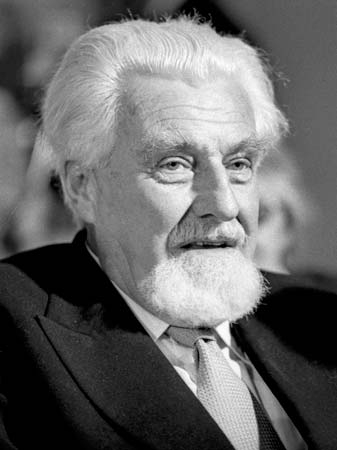 Konrad Lorenz
Konrad Lorenz
Konrad Lorenz, the father of the science of ethology, the study of instinct, gave a warning from an ecological viewpoint, that the abandonment of customs and traditions is steeped with dangers which are likely to be unforeseen. Culture is “cumulative tradition.”[12] [13] It is knowledge passed through generations, preserved as belief or custom. The deep wisdom accrued by our ancestors, because it might be wrapped in the protection of religions and myths, is discounted by the “modern” as “superstitious” and “unscientific.” Lorenz referred to the “enormous underestimation of our nonrational, cultural fund, and the equal overestimation of all that man is able to produce with his intellect” as factors “threatening our civilization with destruction.”
Giambattista Vico,[13] [14] a precursor to Spengler, tried to warn about this superficiality of intellectualization and its rejection of tradition – including religion – at the time of the Renaissance, the much-lauded beginning of the epoch of the West’s decay. Ibn Khaldun attempted the same when there was still something left of the Islamic civilization,[14] [15] on the verge of becoming fellaheen, as Spengler called such spent civilizations, or historically passé. We can say the same about Cato, and many others faced by the “progressives” of their own civilization when entering upon the epoch of decay. “Progress” is one of the great illusions of our time, just as it was in the analogous epochs of other civilizations over the course of thousands of years.[15] [16] If Jeremiah, Cato, or Herodotus were to be transported to this time in the West, they might laugh or sneer at the banal slogans of our “progressives” and “moderns,” and reply, “I’ve seen it all before . . . and it does not end well.”
“Being enlightened is no reason for confronting transmitted tradition with hostile arrogance,” stated Lorenz. Writing at a time when the New Left was rampant, as it is today under other names, Lorenz observed that the attitude of youth towards parents shows a great deal of “conceited contempt but no understanding.”[16] [17] Lorenz perceived a great deal of the psychosis of the Left as a pathogen in the social organism, as it remains today: “The revolt of modern youth is founded on hatred; a hatred closely related to an emotion that is most dangerous and difficult to overcome: national hatred. In other words, today’s rebellious youth reacts to the older generation in the same way that an ‘ethnic’ group reacts to a foreign, hostile one.”[17] [18]
What is of interest is that Lorenz saw this as a youth subculture that was tantamount to a separate, foreign ethnos, when a group forms around its own rites, dress, manners, and norms. In the biological sciences this is called “pseudospeciation.” With this new group identity comes a “corresponding devaluation of the symbols” of other cultural units.[18] [19] The obsession with all that is regarded as “new” among the youth revolt was described by Lorenz as “physiological neophilia.” While this is necessary to prevent stagnation, it is normally gradual and followed by a return to tradition. Such a balance, however, is easily upset.[19] [20] In the psychology of individuals, fixation at the stage of neophilia results in behavioral abnormalities such as vindictive resentment towards long-dead parents.[20] [21] This lack of respect for tradition is aggravated by the breakdown of traditional social hierarchy, mass organization, and “a money-grabbing race against itself”[21] [22] that dominates the Late West.
Since Lorenz wrote of these symptoms of Western decay during the 1970s, the Western social organism has continued to fracture, and as one would expect, it has been exponential – a collective rush to insanity that is ironically upheld as “healthy” by humanistic psychologists, who are themselves afflicted with the psychosis and produce papers and books “proving” that, to cite the latest “progressive” fad, one’s gender is a matter of choice. Again we confront the ideological opposition to “biologism” that kept Lysenko in a job.
Destruction of Symbols is Symbolic
There is now the presence – vastly greater than in Lorenz’s time – of actual ethnoi that have no attachment to the West, but maintain a great resentment. There is also further pseudospeciation among women in terms of radical feminism and “gays,” possessing their own manners, rites, dress, terms of speech, and even their own flags and other symbols. They are united in their hatred of the West, denigrated as “white patriarchy”; with its symbols being torn down and its heroes ridiculed as “dead white males.” The destruction of the traditional symbols of one’s forefathers is a redirected form of matricide and patricide that became a doctrine during the psychotic days of the New Left, among the “Weathermen” and Yippies and so on during the 1960s, when Charles Manson became a revolutionary hero, and Jerry Rubin rejoiced in the death of his mother – who, had it not been for cancer, he would have had to murder.[22] [23] We currently witness the group psychosis of the New-New Left in the compulsion to destroy Confederate monuments, and the frenzied, atavistic hitting and kicking at toppled bronze statues with the frenzy of the Italian mob kicking at the lifeless bodies of Mussolini and Clara Petacci.
This vandalism of the symbols and monuments of tradition is a substitute for murder, such as is unleashed during revolution, like that directed at Confederate memorial statues; by official decree at the statues of General Franco in Spain; and the recent abortive effort to get a statue of New Zealand colonial officer Colonel Marmaduke Nixon torn down, presumably as the beginning of a process, through a colossal distortion of colonial history.[23] [24] It is in each case an example of trying to obliterate the tradition that serves as an anchor, without which hubris leads to self-destruction. In other circumstances, these types – and they are types – would have been burning churches in Spain, or destroying ancient monuments in Iraq.
Notes
[1] [25] Marie-Jean-Antoine-Nicolas Caritat Condorcet, Sketch for a Historical Picture of the Progress of the Human Mind (London: Weidenfeld & Nicolson, 1955).
[2] [26] A. R. Wallace, The Wonderful Century (London: Swan Sonnenschein & Co., 1985).
[3] [27] Francis Fukuyama, “The End of History? [28]”, The National Interest, Summer 1989.
[4] [29] K. R. Bolton, The Decline and Fall of Civilisations (London: Black House Publishing, 2017), pp. 121-124.
[5] [30] Oswald Spengler, The Decline of The West (London: George Allen & Unwin, 1971).
[6] [31] Rupert Sheldrake, “Morphic resonance: Introduction [32].”
[7] [33] C. G. Jung, Memories, Dreams, Reflections (New York: Pantheon Books, 1961), pp. 235-236.
[8] [34] Alexis Carrel, Man the Unknown (Sydney: Angus & Robertson Ltd., 1937), Preface, p. xi.
[9] [35] Carrel, I, p. 1.
[10] [36] Carrel, I, p. 3.
[11] [37] Carrel, I, p. 4.
[12] [38] Konrad Lorenz, Civilized Man’s Eight Deadly Sins (New York: Harcourt Brace Jovanovich, 1974), p. 61.
[13] [39] Giambattista Vico, The New Science of Giambattista Vico (Ithaca, N. Y.: Cornell University Press, 1948).
[14] [40] Ibn Khaldun, The Muqaddimah, tr. Franz Rosenthal (Princeton, N. J.: Princeton University Press, 1969).
[15] [41] Bolton, The Decline and Fall of Civilisations, passim.
[16] [42] Lorenz, p. 64.
[17] [43] Lorenz, p. 64.
[18] [44] Lorenz, pp. 64-65.
[19] [45] Lorenz, p. 69.
[20] [46] Lorenz, pp. 69-70.
[21] [47] Lorenz, p. 73.
[22] [48] Jerry Rubin, Growing (Up) at 37 (New York: Warner Books, 1976), pp. 140-142. This is followed with a few elaborations that enter new realms of psychosis. See K. R. Bolton, The Psychotic Left (London: Black House Publishing, 2013).
[23] [49] Farah Hancock, Newsroom, September 8, 2017, “South Auckland’s Uncomfortable History [50].”



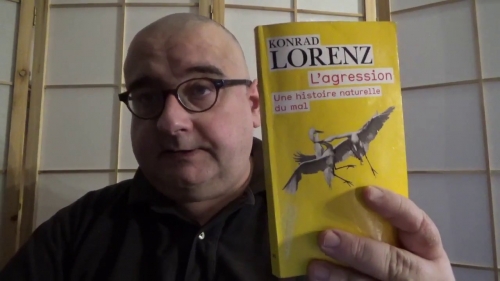

 del.icio.us
del.icio.us
 Digg
Digg
